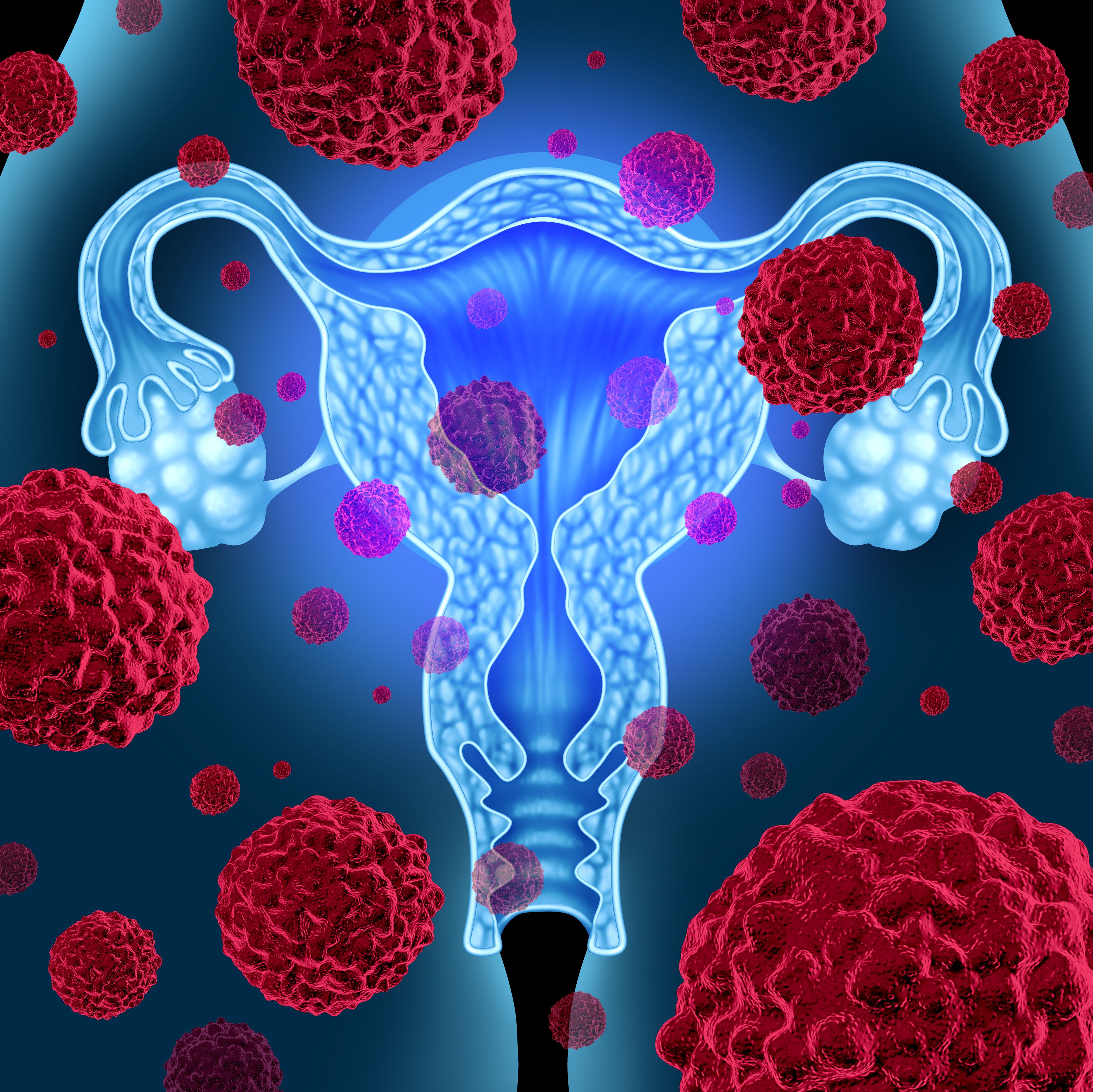ONA-XR and Anastrozole Signals Early Clinical Activity in HR+ Endometrial Cancer
Early findings from the phase 2 OATH trial show treatment with ONA-XR plus anastrozole elicits a 4-month progression- free survival rate of 77% and overall response rate of 22% in patients with HR-positive metastatic endometrial cancer.

In the ongoing, phase 2 OATH trial (NCT03909152) evaluating oral progesterone receptor antagonist onapristone extended release (ONA-XR) in combination with anastrozole to treat hormone receptor (HR)-positive metastatic endometrial cancer, the first 2 patients of 12 have achieved a confirmed partial response (PR).
According to preliminary data from the phase 2 OATH trial, the combination of ONA-XR and anastrozole led to a 4-month progression free survival (PFS) rate of 77% in patients with endometrial cancer. Additionally, there was an overall response rate (ORR) of 22%.
ONA-XR added to anastrozole also showed favorable efficacy and tolerability with rates that were similar to what has been seen with the physician’s choice of chemotherapy of doxorubicin or paclitaxel vs lenvatinib (Lenvima) plus pembrolizumab (Keytruda) in a similar treatment setting of patients with metastatic endometrial cancer.
This initial data signals positive signs of clinical activity and confirmed tumor shrinkage in patients with HR-positive endometrial cancer. The agent also continues to be safe and well-tolerated in this patient population.
ONA-XR is an oral, twice-a-day, selective progesterone receptor (PR) antagonist designed to block both ligand-dependent and ligand-independent activity of PR. Preliminary preclinical and clinical trials of ONA-XR have shown the agent to have anticancer activity by inhibiting progesterone receptor binding to chromatin, downregulating cancer stem cell mobilization, and blocking immune evasion.
In the ongoing OATH trial, 12 patients aged 18 years and older were enrolled with 9 evaluable, including 8 (67%) who had received 1 prior line of chemotherapy and 4 (33%) who had 2 or more lines. Here, the 4-month PFS rate was 77%, ORR was 22%, the drug-related discontinuation rate was 0%, and adverse events (AEs) were mainly grade 1 or 2.
The trial is assessing the primary end point of response rate as determined by RECIST v1.1. To be enrolled in the trial, patients must have measurable disease, recovery from effects of recent surgery, radiotherapy, or chemotherapy, one prior chemotherapy regimen for disease management, a Karnofsky performance status of ≥ 70%, adequate bone marrow, renal, and hepatic function, recovered from any prior radiotherapy, and resolved any acute toxic effects of prior therapy to be grade 1 or less.
Investigators compared the phase 2 OATH study with the KEYNOTE-775 trial (NCT03517449) which enrolled administered chemotherapy to 416 patients, 277 (67%) who had received 1 prior line of chemotherapy, and 139 (33%) who received 2 or more lines of prior chemotherapy, and lenvatinib and pembrolizumab to 411 patients, 324 (79%) with 1 prior line of chemotherapy and 87 (21%) with 2 or more.
In this trial, patients administered chemotherapy vs lenvatinib and pembrolizumab had 4-month PFS rates of 42% and 67%, ORRs of 14% and 32%, and drug-related discontinuation rates of 8% and 33%, at the data cutoff date of September 30, 2022. Further, 73% of patients given chemotherapy and 89% of those administered the experimental arm had grade 3 or higher AEs.
In addition to the phase 2 OATH trial, ONA-XR is also being studied in other phase 2 clinical trials. There are 2 trials in the breast cancer space evaluating the therapy in combination with selective estrogen receptor degraders (SERD), including the phase 1b/2 ELONA trial (NCT05618613) of ONA-XR plus the recently approved orally administered SERD elacestrant (Oserdu) and the phase 2 SMILE study (NCT04738292) of ONA-XR in combination with the injectable SERD fulvestrant (Faslodex).
Investigators expect to announce updated data from the phase 2 OATH trial in the first half of 2023.
REFERENCE:
Context therapeutics highlights clinical responses from the phase 2 OATH clinical trial evaluating ONA-XR for the treatment of endometrial cancer. News release. Context Therapeutics. February 6, 2023. Accessed February 7, 2023. https://bit.ly/3YcbiDo
Lenvatinib-Pembrolizumab Duo Delivers Impressive Results in Endometrial Cancer
September 18th 2024The combination of lenvatinib and pembrolizumab showed promising results in treating recurrent endometrial carcinoma, demonstrating significant antitumor activity and improved survival rates compared to standard therapy.
Read More